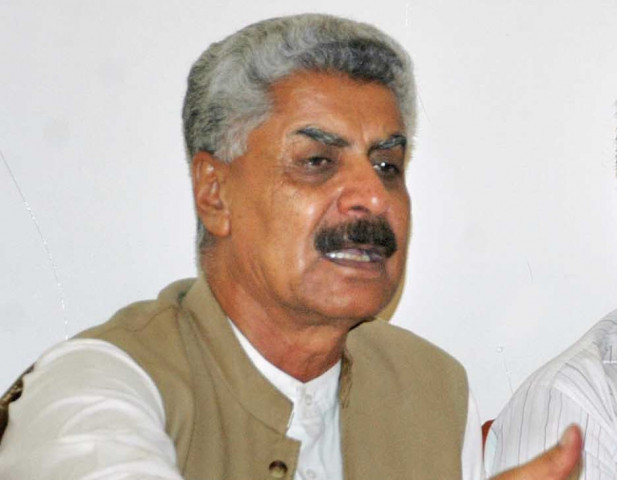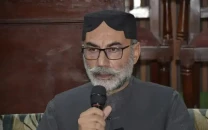US urged to chalk out plan for Afghan refugees’ repatriation
Qadir Baloch discusses problems relating to Afghan refugees with US Deputy Secretary of State Nancy Izzo Jackson

SAFRON Minister Abdul Qadir Baloch. PHOTO: EXPRESS
Talking to US Deputy Secretary of State Nancy Izzo Jackson in Islamabad, he said Pakistan has been facing multiple and complex problems due to Afghan refugees, Radio Pakistan.
The minister said the package given by UNHCR is a major factor in repatriation. He asked the US Deputy Secretary of State to work with Afghanistan for encouraging refugees to return back to Afghanistan.
Nancy Izzo lauded and appreciated the generous hosting of Afghan refugees by Pakistan for so many decades.
Govt advised against forced repatriation of Afghan refugees
She said that the USA is committed to support Pakistan on the issues of Afghan refugees and she will discuss in her next visit to Kabul the land allocation to Afghan refugees by Afghan government.
A majority of participants at a roundtable meeting have rejected the idea of forced repatriation of millions of Afghan refugees, calling such a move ‘unwise’ and ‘harmful’ for the national interest on January 27, 2018.
The roundtable meeting was organised on Saturday by the Institute of Policy Studies (IPS) to discuss a decision of the policymakers not to extend the Proof of Registration (PoR) cards of the refugees beyond January 31, 2018 and send them back to their country.
This decision is apparently taken in view of the increasing hostile attitude of Kabul towards Pakistan and the pressure tactics of Washington.
However, IPS Director General Khalid Rahman believes it is not possible to send back 2.4 million registered and an unknown number of unregistered refugees currently residing in the length and breadth of the country without a comprehensive plan and research-backed policy.
“There are two views about the presence of Afghan refugees in Pakistan – one group considers them an asset and the other a liability. However, the issue must not be seen in black and white as there are many grey areas in it with several shades,” he said.
“Decisions should not be based on perceptions and reactions… a lot of research and policy dialogues are needed to address this issue of critical national and regional importance,” he added.



















COMMENTS
Comments are moderated and generally will be posted if they are on-topic and not abusive.
For more information, please see our Comments FAQ